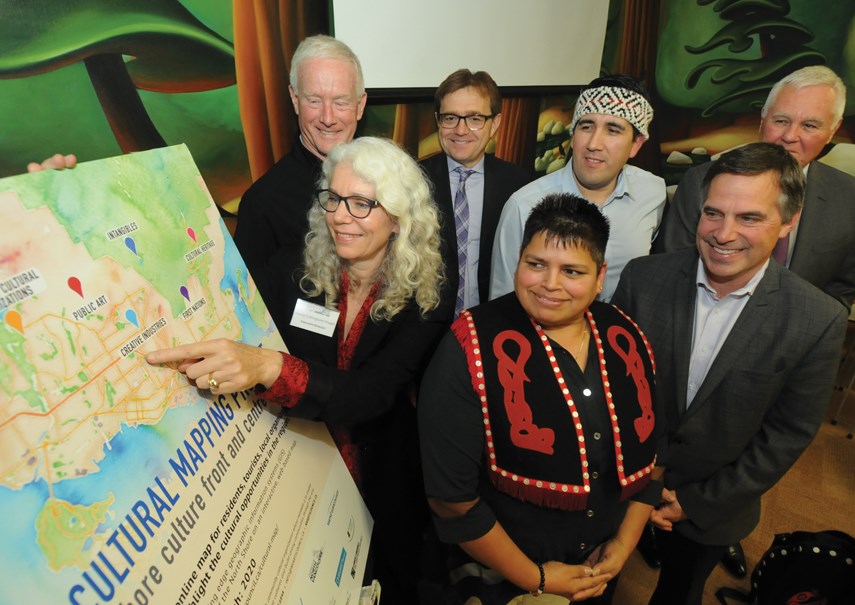The North Shore’s cultural institutions are hoping an online tool can help put them on the map when it comes to being showcased to a broader audience.
Last Friday, North Vancouver MP Jonathan Wilkinson announced on behalf of the federal government that it was giving $421,000 in funding towards a North Shore cultural mapping project, an initiative led by the North Vancouver Community Arts Council and supported by numerous local partners.
The mapping project, which was first spearheaded by the arts council in 2015, would function as an online tool that would identify different cultural assets among the three North Shore municipalities, including art spaces, cultural organizations, festivals, events, public services, heritage institutions, libraries, tourist destinations, multiculturalism societies, First Nations, and more.
Arts council executive director Nancy Cottingham Powell said she was “shocked and elated, all at the same time” at the news that the government was supporting the initiative with its contribution.
“This isn’t just about the cultural community, it’s about how we fit within our community as a whole,” she said.
A release from the government notes an online cultural map would increase the visibility of North Shore arts and heritage organizations and raise awareness of the cultural character of the area.
When the project’s completed the online cultural asset map would look similar to Google Maps, complete with the North Shore’s entire group of cultural institutions pinpointed for users to discover.
Scrolling over the institution online would provide the user with information, images and link to that institution’s website, Cottingham Powell explained.
“It’s from a wide cross section of our community,” she said. “We’re thinking we’re going to end up with about a thousand assets at the end of the day. We’ve drilled that down into 10 categories.”
While North Shore cultural institutions, such as its theatres, art galleries and public facilities, are often well-known and revered by the local community, Cottingham Powell said there’s a desire on the part of many institutions to increase awareness when it comes to being recognized by a wider swath of the population.
“I think a big part of why this is really important is that there’s some major players here on the North Shore that still feel invisible, including the Squamish and Tsleil-Waututh nations,” she said.
“A tool like this is going to really help everyone, not just the residents but also visitors and the organizations within our community – our governments, planners, all those people – see what we have, and where our gaps are.”
Other project partners include the three North Shore municipalities, North Vancouver Recreation & Culture Commission, and Squamish and Tsleil-Waututh nations.
The project’s estimated budget is around $777,000, which would go towards items such as designing, developing and implementing the online map, as well as maintaining it.
“There’s a lot of complicated tech going on here that we need to get right,” Cottingham Powell said. “We also have a lot of money set aside for a project manager and marketing firm because we learned if you don’t have someone focusing on this project and if you don’t have someone telling everyone that this tool exists, all this effort goes into it and then it sits on a shelf. That was a big lesson that we learned from talking to other people across Canada that had done cultural maps, and so we really took that to heart.”
With the $421,000 in funding provided by the federal government, Cottingham Powell said she anticipates $100-150,000 in additional funding is required to complete the project.
She added that when arts council staff were first devising it a few years ago, they originally anticipated the tool would be useful for internal reasons before quickly realizing it could serve a greater cross section of the community.
“I feel like everyone feels like they have a story,” Cottingham Powell said. “What we’re trying to do is put it all in one place, and not necessarily be the originator of this information – but be the hub tool.”
It’s anticipated that the online cultural map will get a soft release in 2019 before being officially rolled out in 2020, alongside an official name for the cultural mapping tool.
Visit nvartscouncil.ca/cultural-map to learn more about the project.



